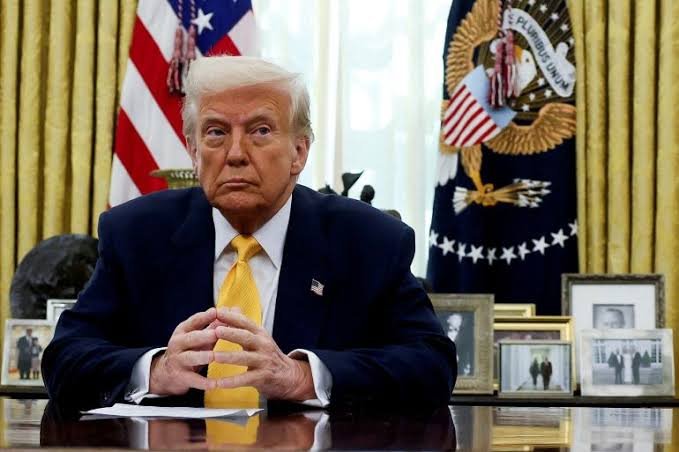In recent months, speculation has grown over former President Donald Trump’s increasingly grandiose rhetoric, leaving some observers to ask a provocative question: Does Trump actually think he’s God? While such a claim may seem exaggerated at first glance, a closer examination of his statements, behavior, and public persona suggests that the former president often positions himself in ways that blur the lines between confidence, messianic self-image, and political performance.
Throughout his political career, Trump has cultivated a brand of leadership that centers on personal infallibility and unwavering loyalty. He frequently describes himself as the only person capable of solving America’s problems, a theme that has resonated with his supporters but raised concerns among critics. His use of hyperbolic language—such as claiming he alone can “fix it” or referring to himself as the “chosen one”—has only added to the perception that Trump views himself as more than a mere mortal political figure.
This perception was further fueled by an infamous moment in 2019, when Trump looked skyward and declared, “I am the chosen one,” while discussing trade relations with China. Though he later dismissed the remark as sarcasm, it was emblematic of a broader pattern in his communication style: deliberately provocative statements that toe the line between satire and self-deification. These statements, while often brushed off by allies as “just Trump being Trump,” can have real effects on public perception and political discourse.
Religious imagery has also become a consistent part of Trump’s public presentation. Supporters have been known to refer to him in messianic terms, with some even calling him the “second coming” or comparing him to biblical figures. Rather than disavowing these claims, Trump has often welcomed them, reposting memes and statements that elevate him to divine status. Such actions blur the boundary between religious symbolism and political identity, creating a powerful mythos around his persona.
Psychologists and political analysts have long studied the phenomenon of political figures who exhibit traits associated with narcissism and authoritarianism. Some experts argue that Trump’s behavior reflects a narcissistic personality with a heightened need for adoration and control. While this doesn’t equate to a literal belief in divinity, it does suggest a self-concept that elevates the individual above normal accountability or critique—a hallmark of authoritarian figures throughout history.
From a communications standpoint, Trump’s grandiosity may be a calculated strategy to energize his base. By positioning himself as a savior-like figure, he taps into a segment of the electorate that desires strong, unwavering leadership in uncertain times. His rhetorical style, often laden with absolutist language and religious undertones, serves to reinforce his exceptionalism in the eyes of supporters and enemies alike.
Critics, however, warn that such rhetoric is not without consequence. The invocation of god-like status—whether in jest, ego, or strategy—can undermine democratic norms and institutions. When a leader portrays themselves as beyond reproach or uniquely ordained, it diminishes the checks and balances essential to a functioning democracy. It can also embolden followers to reject dissenting voices or view political opponents as heretical enemies.
Despite the speculation, there is no concrete evidence that Trump believes himself to be divine in a literal sense. His statements and behavior are better understood as a blend of performance, personal conviction, and political branding. Yet the power of that branding—especially when intertwined with religious fervor—should not be underestimated. It reflects not only Trump’s self-image, but also the beliefs and hopes of millions who see in him something larger than life.
In the end, whether Trump believes he is God may be less important than the symbolic role he plays in the political and cultural imagination of his supporters. As the 2024 election approaches, the lines between political leader, cultural icon, and quasi-religious figure may blur even further—raising critical questions about power, belief, and identity in modern American politics.
